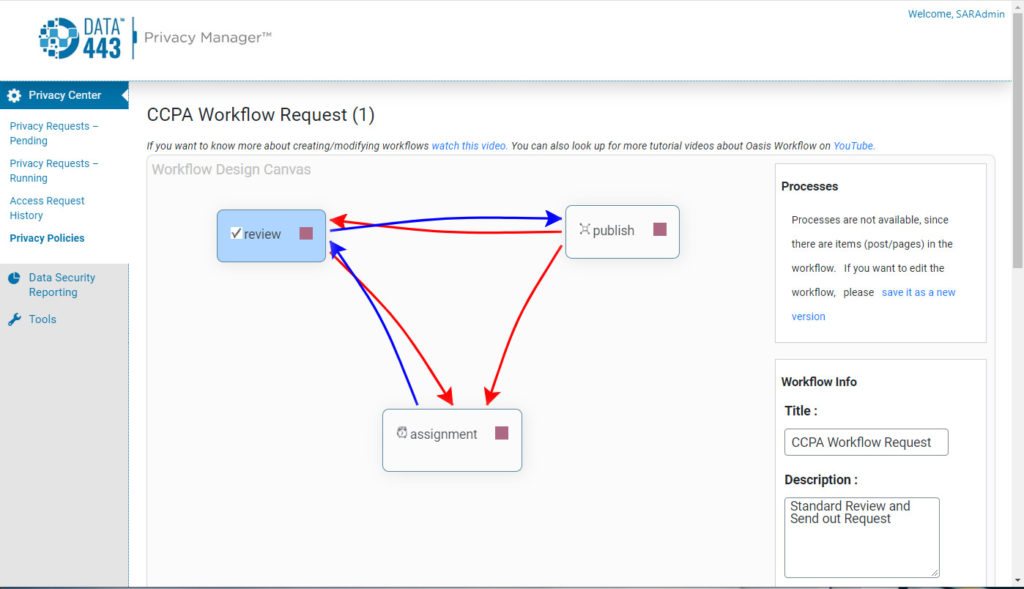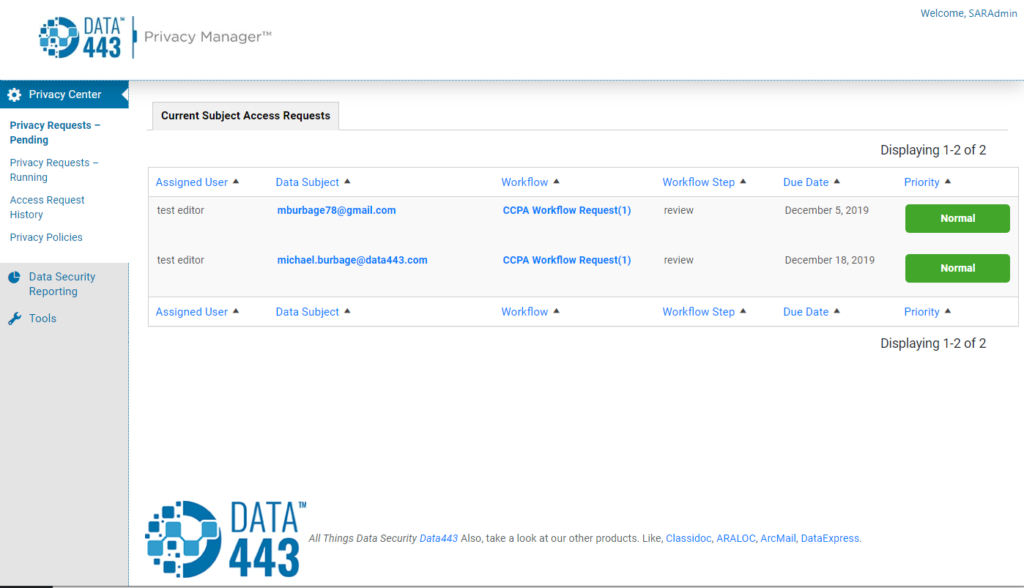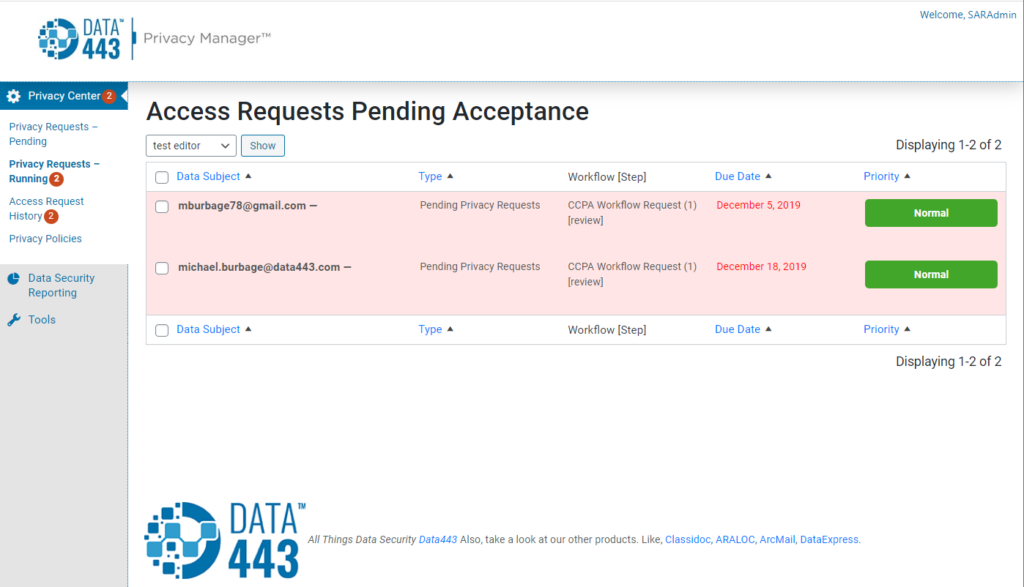Businesses need to map personal information now to have full control and insight into all customer data, or Personal Information (PI) as defined by the CCPA. How Do I Map Personal Information in My Business for CCPA? To comply with the CCPA’s definition of Personal Information, businesses must build a full map of all customer data. Any information that can be used to draw inferences about a customer is covered by the law. So businesses are responsible for drastically broadening their view and control of consumer data.
The first solution to this challenge that comes to mind is building a data inventory. Normally, data inventories are built by simply throwing together all conduits of data within your organization. Then writing reports based on what is being asked for. Unfortunately, with the extremely expansive requirements of the act, this type of legacy solution will inherently not meet the basic requirements.
A CCPA specific data map is the key to governance over customer Personal Information in the age of this new law. As this law intends, businesses must be compliant with many different consumer empowering laws. And, must map all Personal Information across their business – within the strict time constraints of the law, and without blowing their budget. Data443’s Global Privacy Manager (GPM) can help, here’s how.
5 Building Blocks to a CCPA Specific Data Map
Determine Business Objectives – GPM Workflows
The laws laid out require businesses to have comprehensive and real-time control over their customer’s data. Organizations will now be required to have processes in place to handle any ad-hoc and regularly occurring governance-related activities.
With Data443’s GPM, accomplish CCPA specific business objectives by implementing Workflows surrounding the handling of Personal Information. GPM gives a step by step walkthrough of all the law’s related processes. Letting your business save valuable resources and mitigate risks when navigating the strict parameters of the law.

Collect and inventory data – GPM Central Portal
It is important to have a single in-depth view into all of the Personal Information obtained from customers in the business. With Data443’s GPM, gain insights into the trends and tendencies of consumer data through the central portal. This insight can be leveraged into greater compliance, and thus help businesses proactively mitigate risk and economize budget.

Data discovery and classification – Data Subject Access Request
Under the laws, questions regarding; who, what, when, where, and many other factors must be answered in a strict timeframe (45 days). Businesses must provide customers with a receipt that they have received the request. And, information on how they will proceed with the request even quicker (10 days). With Data443’s GPM, leverage CCPA-specific Data Classification and Discovery capabilities to perform consumer data requests quickly and financially viable.

Continuously Compliant – Database Scanning and Analytics
“Under the new laws surrounding consumer data in CCPA, businesses can no longer navigate the compliancy landscape by retroactive processes that simply hope to backtrack and cover the entirety of a customer’s Personal Information identity. The law requires organizations to have a constantly up to date view to the minuscule level of identifying individuals whose Personal Information takes up space on their servers.“
Using Data443’s GPM, identify commonalities and trends within your customer data. Enabling you to segment customer data right down to the singular person/household level – exactly what is required by CCPA.
Gain competitive advantages
While businesses operating in California are seemingly at a disadvantage compared to their non-Californian counterparts. It’s important to note many other states have introduced similar laws. Those businesses already in compliance with the Californian law will be well-positioned to compete in these markets. The regulation can provide a competitive advantage to those successfully operating under it. As there will be significant barriers to businesses looking to enter their Californian market.
Utilizing Data443’s GPM, businesses can leverage compliancy into processes that are compliant under all consumer data privacy laws in the world. Compliancy can develop into a core competency for business. And, that can be used to further cement their competitive position in the marketplace.
Businesses in the US must start taking data ownership very seriously. We saw with GDPR, a lot of organizations were not ready and faced massive consequences. As the law intends, organizations must now be in full control of their data from top to bottom.
This data must be constantly up to date, accurate, and fully accessible. Many companies are still mapping their data with surveys. And the true extent of this mishandling of data will become evident when CCPA is introduced – just like it did with GDPR.
Compliancy does not have to cause anxiety and worry to business owners in/operating-in California. This law is being introduced to move the power of data back into the hands of the customer. Thus, creating room for significant space to develop between competitors in the realm of customer trust and relationships.
Data443’s Global Privacy Manager (GPM) was built specifically for the California Consumer Privacy Act (CCPA). It can help businesses cultivate compliancy and control their customers’ Personal Information. Turning compliance into an asset that helps them lower budgets, strengthen brand trust & perception, and put distance between them and their competitors.
